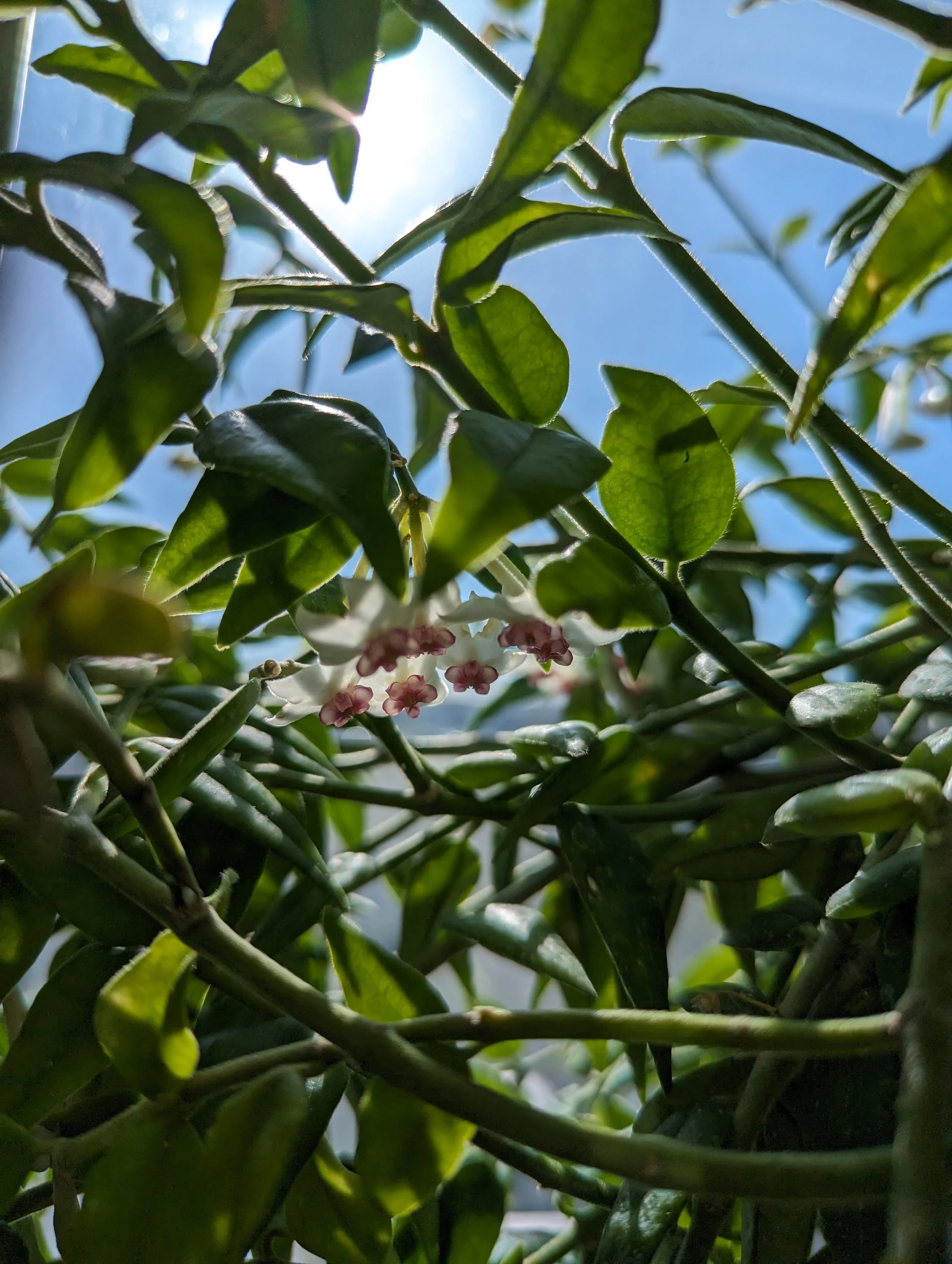
Hoya
Hoya
__________________
Scientific Name(s):
Hoya spp. - there are many
Common Name(s):
Hoya, Wax Plant
__________________
Difficulty:
Easy
Water:
Vining
Growth:
Props:
Stem Node Cuttings
Drought Tolerant, but Prefers Consistency
Light:
Medium - High
Humidity:
Low
Pests:
Mealy Bugs
Quirks:
They will stop growing near completely if they don’t have the nutrients they need
Light Levels
______________
Hoyas can do well in Medium or High Light as their succulent leaves can withstand much high intensities.
They can do well in East, South, and West windows or under grow lights! Pretty much anywhere that gives them good light. Mine absolutely thrive in my east windows!
Though that being said, I do not recommend placing any white or yellow variegated varieties in West windows, as those can be a bit too intense for those sensitive leaves.
Watering Techniques
______________
Though Hoyas are drought-tolerant, they still prefer consistent watering.
Water your Hoya when it passes the Baking Check - meaning when it is still slightly damp but not wet (moisture meter reading of 3 - 4).
Check out my Watering page for more about the Baking Check and how to tell when your plant is ready to water!
Pest Strategies
______________
The only pest that has troubled my Hoyas are Mealy Bugs.
Mealy Bugs are fairly easy to manage. I simply use a toothpick to squash the little buggers. Doing that every time you water for a bit should get rid of them nicely.
You can also use a Q-tip with some isopropyl alcohol on it squash them. The alcohol is more effective in keeping them away and also deters other pests.
Note: Visit my Pest page for more tips on how to manage pests!
Growth Habit
______________
Hoyas are vining plants.
They send out runner stems to try and find something to attach to. Once they bump into something, they twine themselves around it for support.
These stems don’t look like they have any leaves, and sometimes that bothers people. But if you look closely, you will see little leaf buds along them stem. So don’t cut these runners back or you won’t get any new leaves and your plant won’t be able to grow!
Because Hoyas are vining plants, they do really well with Trellises and other support structures. As the new stems are growing, you can just periodically wrap them back in around themselves and their supports.
This keep them more compact and manageable so they don’t vine out of control and grab onto everything around them.
Fertilizer
______________
I have found that Hoyas in particular will stop growing near completely when they don’t have all the nutrients they need. Some will even start to wither if they aren’t being fed enough. So, they are definitely a heavy feeding plant.
To keep them happy, I sprinkle some Osmocote All-Purpose Granular fertilizer on the top of their soil about every 4 months, or whenever I notice their growth start to slow or die back.
Note: Check out my Soil & Fertilizer page to learn more about how to fertilize your plants!
Flowers
______________
Hoyas do have the potential to produce some beautiful clusters or star-shaped flowers.
Some varieties are fragrant and some varieties are not. Some are prolific bloomers and some are harder to get blooming. But they come in all kinds of sizes and colors, and some event have unique shapes, which make the blooms well worth it!
It is always a treat when you get blooms. And you can even sample their nectar, which is sweet to the taste!
Note: For any plant, flowers are the most sensitive part. They take a lot of energy to grow and maintain. So plants need to be experiencing optimal conditions before they will bloom. This means consistent water, good light, and adequate nutrients.
If anything goes wrong with the plant when it is blooming, the flowers will be the first things to go, and the plant will return to basic survival mode. So make sure to keep your plants happy to ensure the longest bloom time!
Propagation
______________
The best way to propagate Hoyas is through Stem Cuttings.
Most varieties do alright with Single Node Stem Cuttings, but others - mainly the small leaf varieties - may need up to 3 Nodes on a cutting to have a better chance with new growth and root development.
Check out my Propagation page to find out how to collect and care for these types of cuttings!
Our Varieties
______________
Curtisii
Eskimo
Krimson Queen
Limoniaca
Shooting Star
Sunrise
Bella
Australis
Carnosa
Burtoniae
Krimson Princess
Hainanensis
Pubicalyx ‘Splash’
Mathilde
For more Care Tips:
Visit my General Care Tips page to discover more tips for:
Light Levels - Watering Frequency - Fertilizing - and More!






















